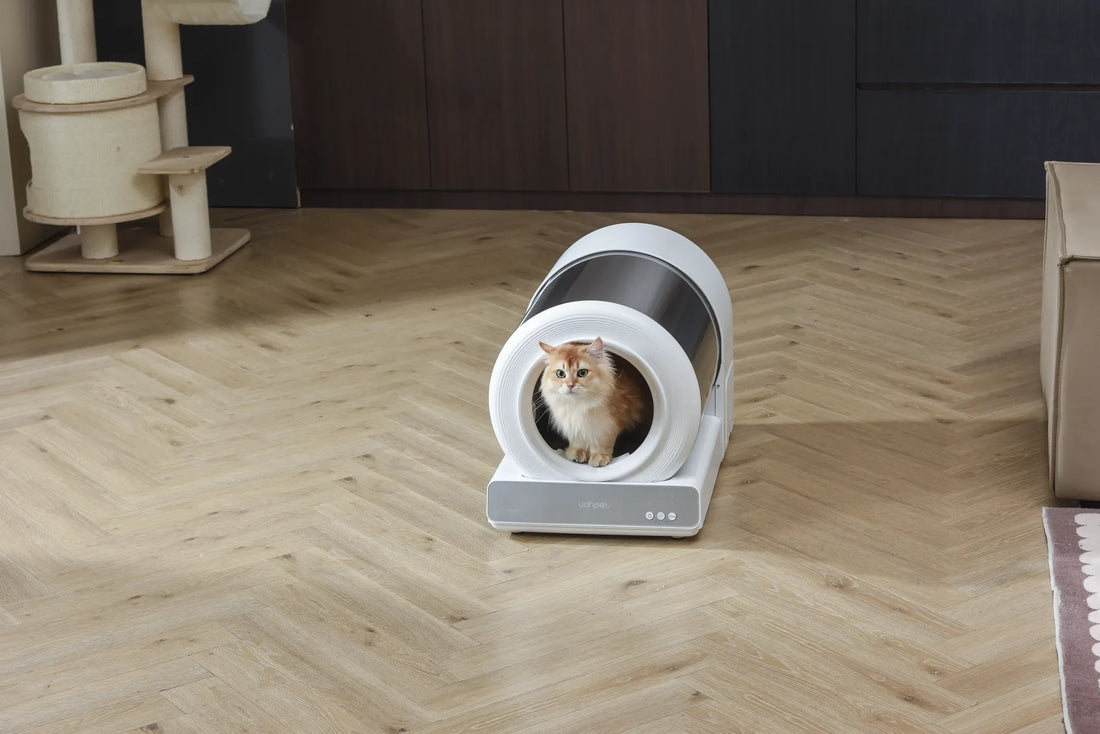If you've ever noticed your cat hanging out in the litter box, you might be puzzled or even concerned. While it's not the most common behavior, it can happen for various reasons. Understanding why your cat is drawn to this space is crucial for ensuring their well-being and addressing any underlying issues.
Why Does My Cat Hang Out in the Litter Box?
Cats are creatures of habit, and their behaviors often have specific causes. Here are some common reasons why your cat might be spending time in the litter box:
- Stress or Anxiety: Cats may seek refuge in the litter box when they feel stressed or threatened. This behavior can be triggered by changes in their environment, such as moving to a new home, introducing a new pet, or even rearranging furniture.
- Medical Issues: Certain health problems, such as urinary tract infections, constipation, or other digestive issues, can make the litter box a comforting place for your cat. If they associate the box with relief, they might linger there.
- Territorial Behavior: Cats are territorial animals, and the litter box can serve as a safe space where they feel in control. This is especially true in multi-cat households where competition for resources can be intense.
- Comfort and Security: Some cats simply find the litter box cozy and secure. The enclosed space can provide a sense of safety, particularly for shy or anxious cats.
Health Implications of This Behavior
While it might seem harmless, a cat hanging out in the litter box can indicate underlying health issues. Here are some potential concerns:
- Urinary Tract Infections (UTIs): Cats with UTIs may associate the litter box with relief and spend more time there. Look for signs like frequent urination, straining, or blood in the urine.
- Digestive Problems: Constipation or diarrhea can also lead to prolonged litter box visits. If your cat seems uncomfortable or is having trouble eliminating, consult your veterinarian.
- Stress-Related Illnesses: Chronic stress can weaken your cat's immune system, making them more susceptible to illnesses. Addressing the root cause of their anxiety is essential for their overall health.
How to Address the Behavior
If your cat is hanging out in the litter box, there are several steps you can take to address the issue:
- Visit the Vet: Rule out any medical problems by scheduling a check-up with your veterinarian. Early detection and treatment can prevent more serious health issues.
- Reduce Stress: Identify and minimize stressors in your cat's environment. Provide safe spaces, such as cat trees or hiding spots, and maintain a consistent routine.
- Enhance the Litter Box Experience: Ensure the litter box is clean, spacious, and placed in a quiet location. Consider using unscented litter, as some cats are sensitive to strong smells.
- Introduce Enrichment: Keep your cat mentally and physically stimulated with toys, scratching posts, and interactive play. A bored cat is more likely to develop unusual behaviors.
Creating a Comfortable Environment
To prevent your cat from hanging out in the litter box, focus on creating a comfortable and enriching environment. Here are some tips:
- Provide Multiple Litter Boxes: In multi-cat households, ensure there are enough litter boxes to reduce competition. The general rule is one box per cat, plus one extra.
- Offer Safe Spaces: Cats need places where they can retreat and feel secure. Provide cozy beds, hiding spots, or even cardboard boxes.
- Maintain a Clean Environment: Regularly clean the litter box and surrounding area to keep it inviting. Cats are more likely to avoid a dirty or smelly box.
- Use Pheromone Diffusers: Synthetic pheromones can help reduce stress and anxiety in cats. These products mimic the natural pheromones cats use to mark their territory as safe.
When to Seek Professional Help
If your cat's behavior persists despite your efforts, it may be time to consult a professional. A veterinarian or a certified animal behaviorist can provide tailored advice and solutions. They can also help rule out any serious medical conditions that might be contributing to the behavior.
Remember, every cat is unique, and what works for one might not work for another. Patience and observation are key to understanding and addressing your cat's needs.
Seeing your cat hang out in the litter box can be concerning, but with the right approach, you can help them feel more comfortable and secure. By addressing potential health issues, reducing stress, and creating a cat-friendly environment, you can ensure your feline friend stays happy and healthy. Don't hesitate to seek professional guidance if needed—your cat's well-being is worth it!













